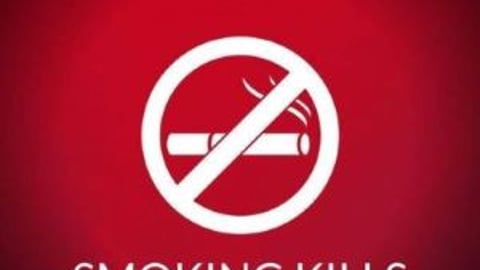Tobacco companies seek to extend order suspending legal proceedings against them
Three tobacco giants are yet again seeking to extend an order suspending legal proceedings against them, as they negotiate a settlement with creditors in a long-running case involving an order to pay out billions to some 100,000 smokers and their loved ones.
Documents filed with an Ontario court show the companies — JTI-Macdonald Corp., Rothmans, Benson & Hedges and Imperial Tobacco Canada Ltd. — are asking for the stay of proceedings to remain in place until late March 2025.
The request was set to be heard Tuesday, but court documents show the hearing has been postponed until Oct. 31, with the stay extended until then. It was previously set to expire Monday.
The delays, along with a lack of public information surrounding the case, have raised the ire of health advocacy groups that say provinces could fumble a historic chance to impose regulations and smoking-reduction measures on the industry.
In an affidavit, the managing director of Rothmans, Benson & Hedges said the company believes progress has been made on a number of issues over the course of the mediation. "However, there are some major remaining issues which RBH views as vital to any consensual global settlement of tobacco claims," Milena Trentadue said in the affidavit, which is included in the company's application for an extension.
The company continues to participate in mediation in order to resolve those issues, she added.
"At this stage, it is difficult to provide a precise estimate of the remaining time needed for completion of these proceedings. Given the number of parties and steps to be taken and work to be done, RBH anticipates that not less than six months (and perhaps more time) will be required," Trentadue said.
READ: P.E.I. considers banning people born after certain date from buying tobacco products
The remaining steps include completing the settlement negotiations as well as a claims process, holding at least one creditor meeting, obtaining a sanction order and implementing the plan, she said. The order to put legal proceedings against the companies on hold was first granted in early 2019 after the three lost an appeal in a landmark legal battle in Quebec.
The stay aims to maintain the status quo while the companies work out a global settlement with the class-action members and several other creditors, including provincial governments looking to recoup smoking-related health-care costs.
The initial stay of proceedings lasted a few months, but it has since been renewed roughly a dozen times. The negotiations are confidential. Some groups argue the creditor protection process is inherently problematic in this case because it focuses on industry viability rather than on public health and other issues.
In a joint statement released last week, Action on Smoking & Health, Physicians for a Smoke-Free Canada and the Quebec Coalition for Tobacco Control said parts of the companies' recent court filings suggest the provinces "have agreed to an industry-friendly process."
"Not only has this insolvency process allowed the tobacco industry to continue 'to operate its business in the normal course' for five-and-a-half years, but it also seems to have granted tobacco manufacturers a veto on any final deal," said Cynthia Callard, the executive director for Physicians for a Smoke-Free Canada.
"Several passages in the companies' motions, including references to a 'consensual' settlement, suggest Big Tobacco is holding the big end of the stick – not the creditors, including provincial governments and class action lawyers."
The companies sought creditor protection in Ontario after Quebec's highest court ordered them to pay more than $15 billion to roughly 100,000 Quebecers in two class-action lawsuits.
The lawsuits involved smokers who took up the habit between 1950 and 1998 and fell ill or were addicted. Heirs of such smokers were also party to the suits. Court filings from last September suggest hundreds of the class-action members have died since the creditor protection proceedings began.



